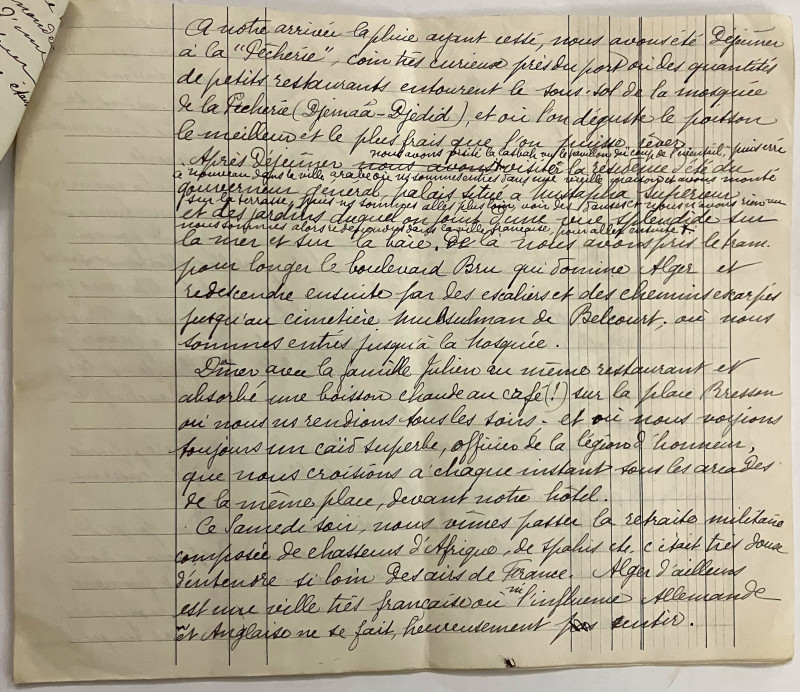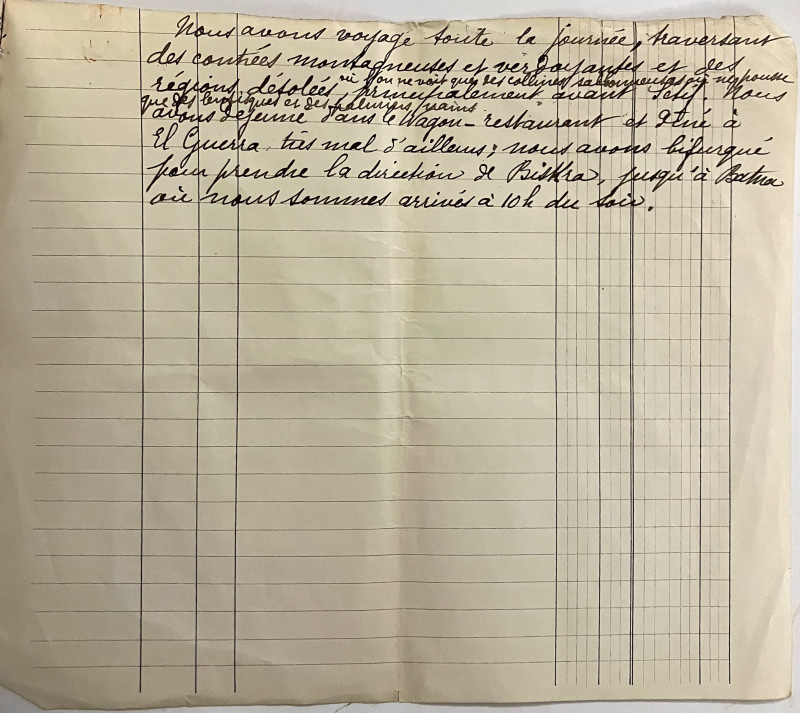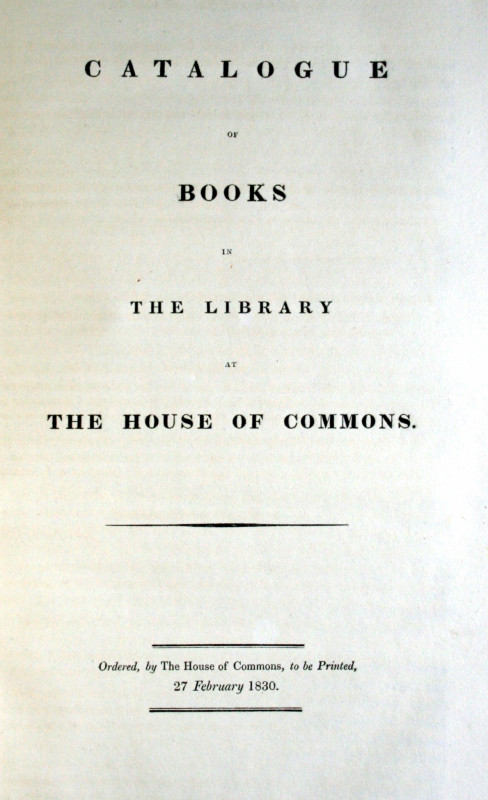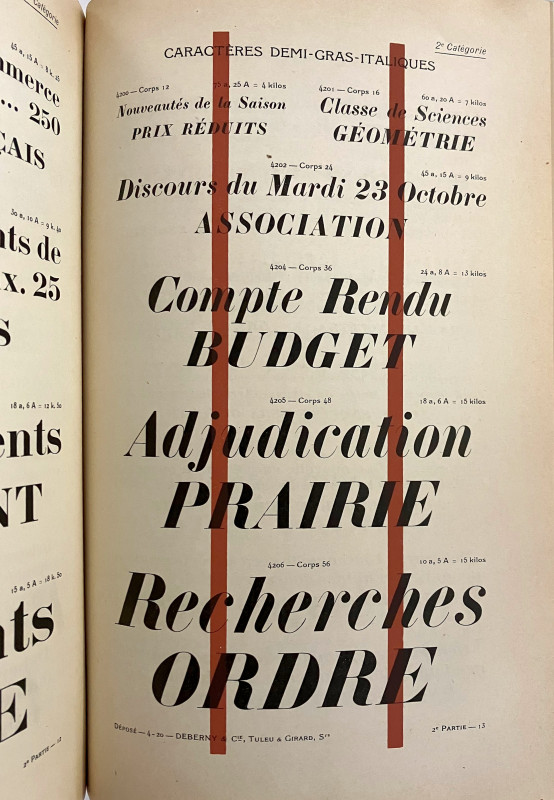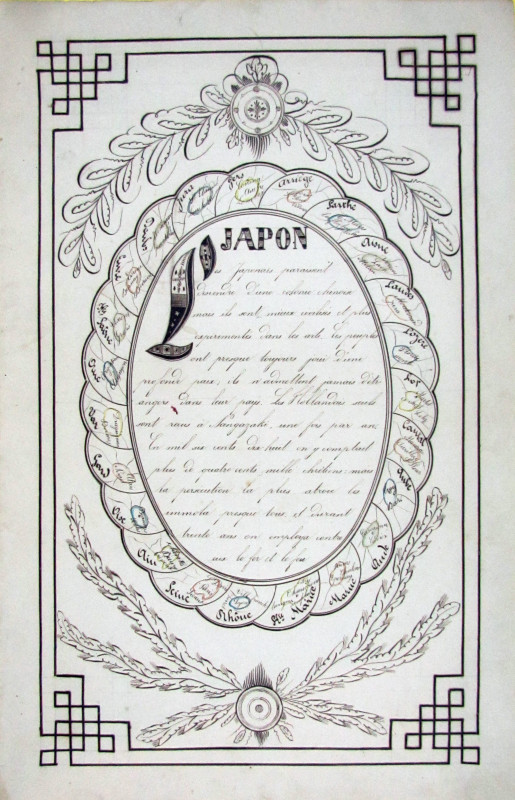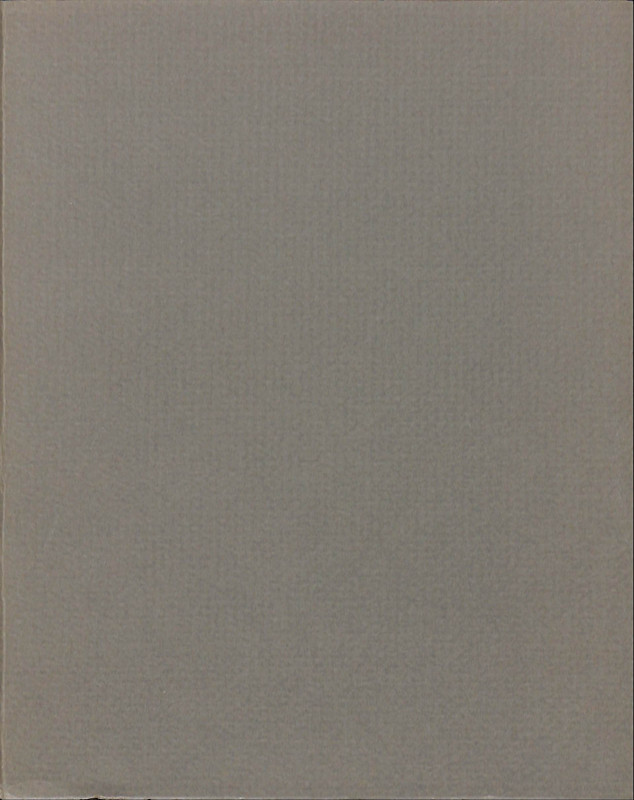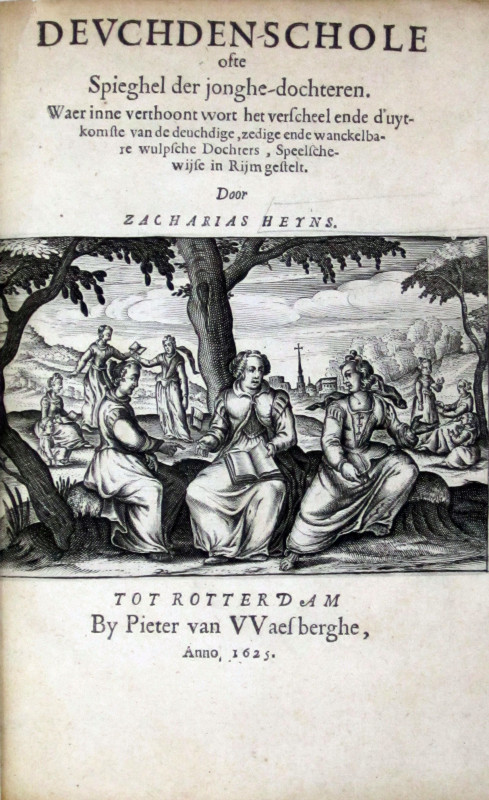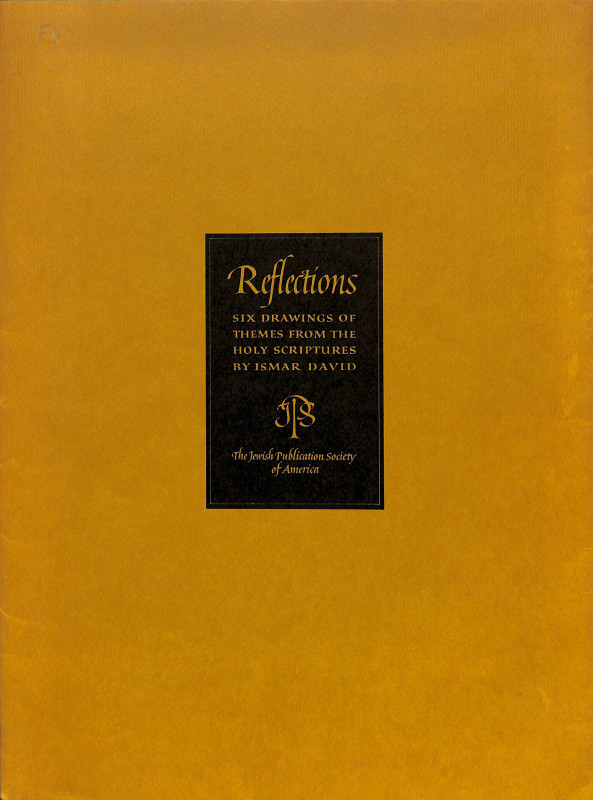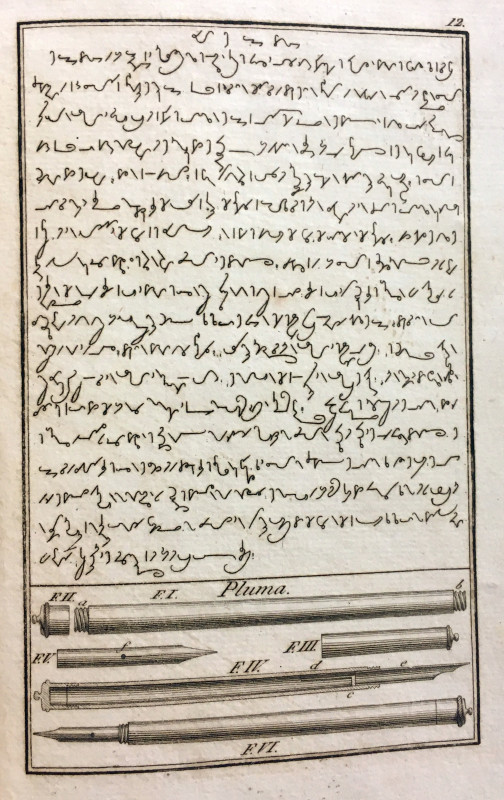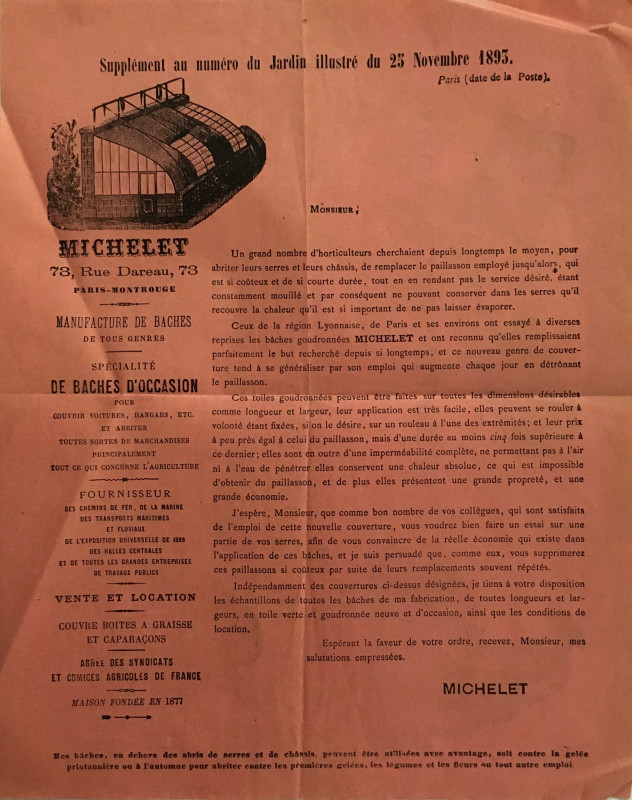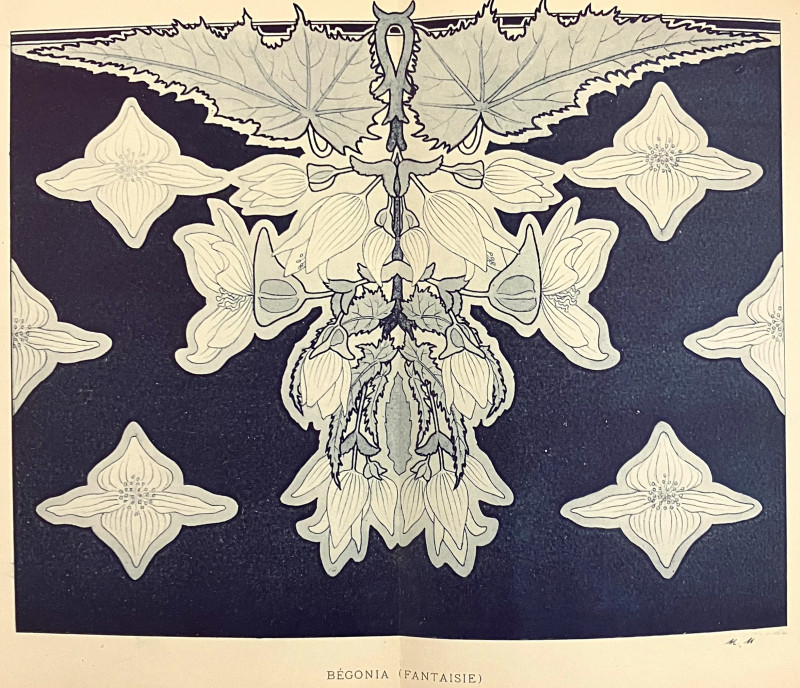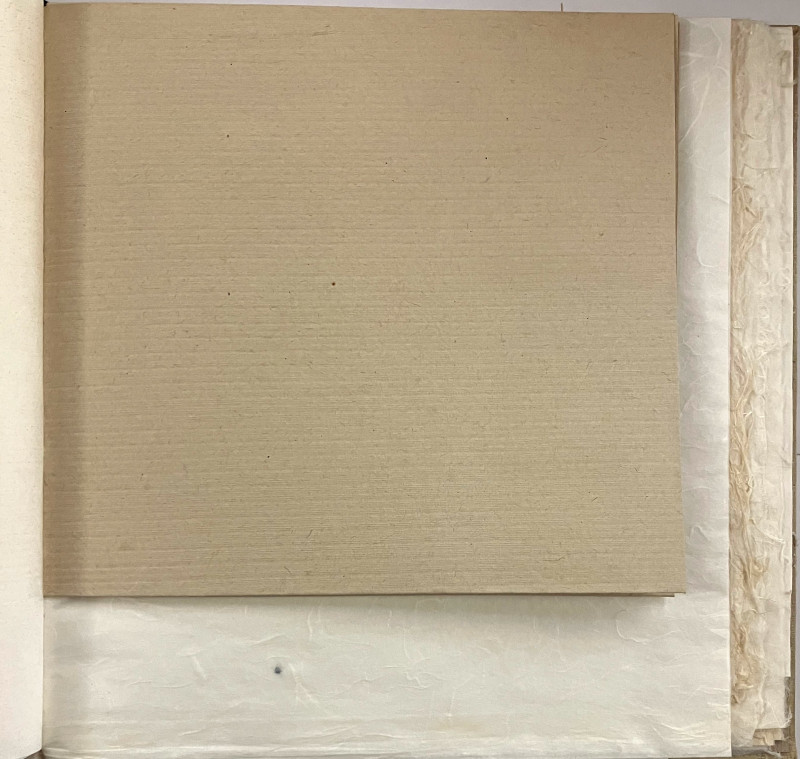Attending a wedding in colonial Algeria.
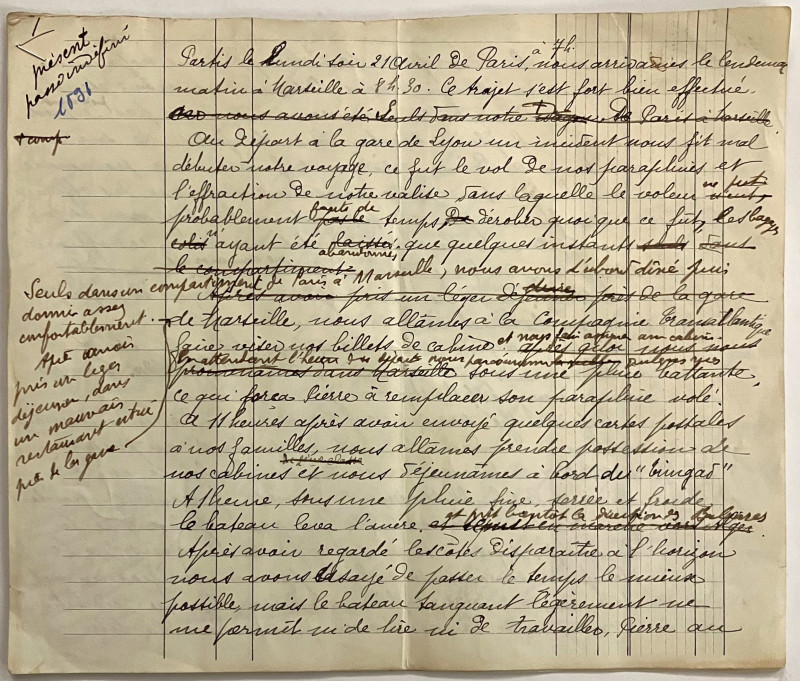
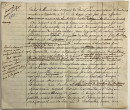
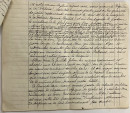
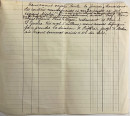
Book Description
No place, no date (but France/Alger c.1890). 18pp stapled. Lined accounting paper torn in half before writing. (Size:18 x 20 cm). Description of 12 days of a trip from Paris to Polestra (Algeria) for a wedding organised by the family Prengrüeber. Side-notes and corrections by the author herself
Dealer Notes
Starting their trip on April 21st of 1890 from Paris, a couple is heading towards Algeria. They are in for a rough start as their umbrellas get stolen at Garde de Lyon and as rain followed them from Paris to Marseille and even to Alger, all while being sea-sick.
During the voyage with her husband Pierre, the author is astonished mostly by the rich sights of local gardens, mosques, casbah… She richly describes the sumptuous clothes of European women, but also the way local women wear their veil according to different customs. Over the 12 days described in this manuscript, probably preparatory for another account, we learn of the French colonial hotels and restaurants (Hotel de Nice, Brasserie Gruber) as well as the presence of the army. The couple seems very inclined to talk with military men. During their travel, we can guess their background; they make mention of telegraph, photography, phonography and autos, pinacles of technology at that moment, only accessible to the rich.
She and her husband adopt a colonialist view on the locals and more than once speak of uncalled-for thieving. They visit Alger, the French and Arab parts of town, having each night diner with their friends, the Julien family. To get to the wedding organised by the Docteur Prengrüebeur (colonial doctor, part of the anthropological society of Paris), they venture further in the country : El-Biar, the Kouba Valley, Blida, the Chiffa gorges, Bouffarik, Béjaïa, Mansouriah caves, Sétif…
In Palestra they arrive with other families (Lüeckel?, Lagervinais, Broussais…) on Monday, the 28th of April for the civil wedding and stay until after the religious wedding, blessed by the bishop of Chartres. It is hard to determine whose mariage it was, only that André Julien is the « garçon d’honneur » with a girl from Alger.
The manuscript ends at the end of May the second, in the city of Batna, for no known reason.
During the voyage with her husband Pierre, the author is astonished mostly by the rich sights of local gardens, mosques, casbah… She richly describes the sumptuous clothes of European women, but also the way local women wear their veil according to different customs. Over the 12 days described in this manuscript, probably preparatory for another account, we learn of the French colonial hotels and restaurants (Hotel de Nice, Brasserie Gruber) as well as the presence of the army. The couple seems very inclined to talk with military men. During their travel, we can guess their background; they make mention of telegraph, photography, phonography and autos, pinacles of technology at that moment, only accessible to the rich.
She and her husband adopt a colonialist view on the locals and more than once speak of uncalled-for thieving. They visit Alger, the French and Arab parts of town, having each night diner with their friends, the Julien family. To get to the wedding organised by the Docteur Prengrüebeur (colonial doctor, part of the anthropological society of Paris), they venture further in the country : El-Biar, the Kouba Valley, Blida, the Chiffa gorges, Bouffarik, Béjaïa, Mansouriah caves, Sétif…
In Palestra they arrive with other families (Lüeckel?, Lagervinais, Broussais…) on Monday, the 28th of April for the civil wedding and stay until after the religious wedding, blessed by the bishop of Chartres. It is hard to determine whose mariage it was, only that André Julien is the « garçon d’honneur » with a girl from Alger.
The manuscript ends at the end of May the second, in the city of Batna, for no known reason.
Author
(TRAVEL MANUSCRIPT).
Date
c. 1890
Friends of the PBFA
For £10 get free entry to our fairs, updates from the PBFA and more.
Please email info@pbfa.org for more information
